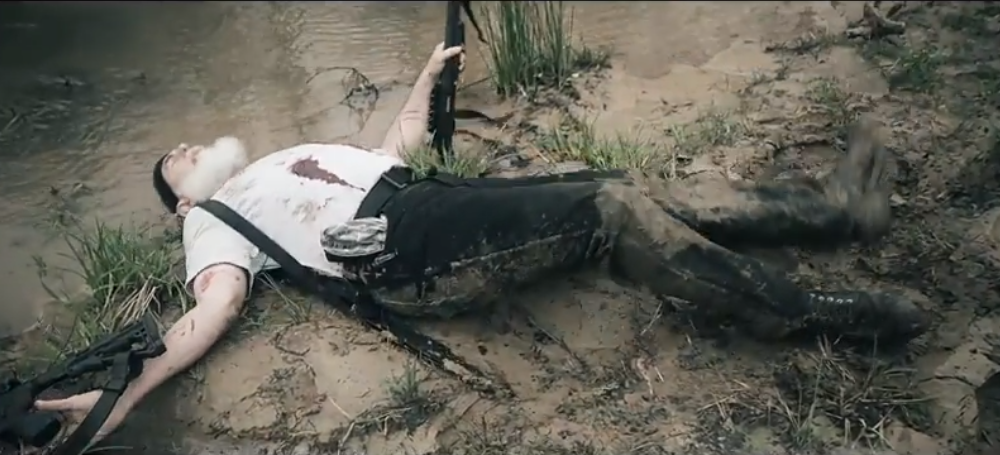

Today we’d like to introduce you to Ira Chandler.
Thanks for sharing your story with us Ira. So, let’s start at the beginning and we can move on from there.
Back in 1988, a Partner and I started a company, on a shoestring, to sell Automated Data Collection hardware and software, bar code equipment. We grew slowly and did some business with State agencies. In 1991, the main distribution warehouse for the State of Georgia asked us to bid on automating their main warehouse. That resulted in introducing me to the IBM Midrange platform, systems that were bigger than PC servers, and could be as large as small mainframes. I abandoned my two decades of experience in UNIX and fell in love with the stable IBM platform, then named AS/400.
We went on to win the bid, become an IBM Business Partner, and identified the lack of real-time communications software for the systems to talk to serial, asynch, RS232 devices like bar code readers, scales, pick-to-light systems, and conveyor controllers. So, I did the research and wrote the first commercial software for the platform to do that. We had great success, aided by a local company, Manhattan Associates, adopting our technology.
This IBM Midrange platform, while not highly publicized, runs most of the big companies you do know. New York Life Insurance, Home Depot, Coca-Cola and tens of thousands of others manage their businesses on it.
In 1993, I got a call from Ener-G Foods of Washington, asking if my software could talk through a modem to a CREDIT CARD authorization network. I got some details and committed to it. That was the germination of the credit card software with which I am still involved.
When a large company handles telephone orders, their operators are typically keying in the card data into their workstations, putting the ENTIRE enterprise in scope (jurisdiction) of the Payment Card Industry (PCI) security mandates. This requires them to submit annual audits that are complicated, time-consuming and invasive. The Curbstone technology can eliminate their existing systems from touching the credit card data entirely, reducing the exposures, improving security, and reducing the reporting requirements. We also have solutions for e-commerce shopping carts and for Retailers who accept physical cards.
We grew that company, ROI Corporation, to acquire GO Software and then go public in 2000. At that point, we were the pre-eminent vendor of real-time credit card middleware for the IBM AS/400, now called iSeries or System i.
ROI was sold to Verifone to become their software division, and I started Curbstone, my current company. As my non-compete expired, I realized that Verifone was not servicing my old customers to my satisfaction, and wrote new credit card software from scratch, Curbstone Card. We went to market in 2004, and since have become the sole native solution for IBM Midrange businesses.
Our software has evolved from a licensed product running on the merchant’s system to a Software-as-a-Service with enhanced security. We provide three major benefits, increased security, seamless integration to order entry apps, and reduced credit card fees. Though we are only the largest software company in Greater Metropolitan Ball Ground, Georgia, we have achieved the highest possible level of PCI credit card security, being validated as a “Service Provider Level 1”. This is the same security certification that PayPal, for instance, must achieve.
Having been born to entrepreneurial parents, being my own boss has always been in my blood. Only with these last two companies have I achieved any real level of success. One guiding principle has been that you cannot succeed if you quit. If things are tough, keep going. Evaluate what is not working, and change your approach, adjust according to your results. But, never give up. In the beginning, we did little right. And we learned from it, employing those lessons and growing our judgment.
Obviously, though we provide software and a processing Portal, our technical and operational support service is the most critical aspect of our business. Each customer pays a flat fee per year for unlimited support, 24x7x365, the only level we offer. We do everything short of actual programming. This way, no customer ever hesitates to contact us for support, 24 hours a day. This reduces frustrations and eliminates fears that a customer’s staff might invoke additional charges from us for support. Card processing is mission-critical, our support reflects our acknowledgement of that fact.
One area we struggle to get right is to avoid providing the “right answer to the wrong question”. This happens when a customer asks a question to obtain what they perceive is the solution. Many times, they are not stating the issue they are trying to solve, but asking for the solution they THINK will solve it. While we can provide those answers too, the real skill is hearing the question, then digging down to what the foundation is. An example is a customer asking for a new monitor, when the one they have works, it just got unplugged. The right answer is “is it plugged in, is it turned on?”, not “yes, we will get you a new monitor.” Due to the complexity of card processing, we can easily get lost in the effort to answer every question was asked, and that is not always going to be the most effective solution.
The other area of training that has contributed to our success is the training we provide on trouble-shooting. Our process is to list all of the assumptions that are required for the function to work, and then validate them one by one. If the list is comprehensive, we will find the assumption that is not satisfied, and resolve the issue. Without this process, we found we would often skip assumptions because they were rudimentary and very commonly valid. That, by nature, makes them very suspect. By formalizing this process, we can be more efficient in problem resolution.
Our company is very flat, in that we do not believe in unnecessary layers of management. We push decisions to the lowest possible level, so everybody can control the areas with which they are most familiar. Everyone is empowered to “do whatever it takes” to satisfy the customer. We have hundreds of unsolicited laudatory testimonials that prove this works. Nobody will outright ask someone HOW to do something. They will suggest one or more ways to do it, and discuss the best approach. This forces everyone to think through their questions, and in so many cases, come up with their own great resolution.
We endeavor to manage by asking questions. Though we have stringent security requirements, and tons of stuff to force people to do, we try to ask the right questions so people can think through the challenge, and come to their own decision. If we ask the right questions, the right decisions follow. We use the same method to solve problems, and even if someone knows the answer, we work to ask the questions that lead the person to discover the solution. That is a way more valuable learning experience than just dictating answers.
We also shine the spotlight, in that our staff is applauded when they have success, and the Company takes responsibility if they fail. We should never put our people in a position to fail. The Company is obligated to train and prepare the staff to handle every situation, and if the Company does not do that well, it is the Company’s fault.
As the principle with 24 years of expertise, I have to work hard to ensure that the company can grow around me. I cannot be the key element to drive all decisions, or the company will be dependent on me, and never develop the judgment to function beyond my own ability to govern.
A lot of this might sound like regurgitated Business School malarky, but we really do live by these principles and methods.
Overall, has it been relatively smooth? If not, what were some of the struggles along the way?
The biggest struggle we have faced over the years is the common challenge of all small, growing companies. That is the “critical mass” balance. Since we all wear many hats, even today, we have to balance the internal resources. If we have too much marketing, we might not have the sales staff to take advantage of that. If we have too much sales success, we might not have enough Project Management resources to implement all the sales. If we have enough Project managers and install lots of customers, we need to have a balance of support people to handle their possible issues. Maintaining this balance, when the hiring of just one person is a significant commitment, is possibly the biggest challenge we had early on.
As we grow, our working in a heavily regulated industry where the card brands, like Visa, Mastercard, the authorization networks to whom we certify officially, as well as the PCI Security Standards Council, dictate what we have to do when. Maintaining a coherent internal roadmap is very challenging when we are slaves to so many masters.
Alright – so let’s talk business. Tell us about Curbstone Corporation – what should we know?
As a company, we are most proud of the security status we have achieved, and the unique technology that we offer this IBM AS/400, System i, platform. No company that we know of can provide the seamless integration to existing order entry systems, increase security by reducing exposure and scope, and reduce the merchant’s PCI reporting burden the way we can.
We are proud to be recognized by the second largest authorization network in the US, TSYS, as a “Gold Partner”. This is significant since there are only 20 in the US, and that includes all categories of partners. I was invited to sit on their VAR Advisory Board, as well, and that is an honor, as well as an opportunity to speak for our platform.
Any shoutouts? Who else deserves credit in this story – who has played a meaningful role?
If you ask “who else deserves credit”, the reality is that our people have made this company deserve all the credit. I’ll take a bit of credit for assembling this great crew, but even that involved some trial and error on my part. We get unsolicited testimonials from our customers delighted with our support and product, and that speaks for the entire staff. Everyone in the company contributes to the delivery of a great, stable product, and the providing of exemplary support.
Personally, I owe a ton to my parents for being older and having lived through the most impactful recent years of this Country’s development. My Father was born in 1899, and his perspective on the American values, principles, and exceptionalism gave me the confidence to pursue the American Dream – until I got it close to right. His belief in self-sufficiency, avoiding waste at all levels, and the ability of the individual to create their own destiny was the root of my confidence. My Mother ran night club photography concessions at multiple Hotels in Miami Beach in the 1950’s, an era when women were more likely to be seen in ads as housewives.
More recently, none of this would have been possible without the support of my first wife, Katy. And she is still my wife, and still first! Her unwavering acceptance of my hare-brained ideas allowed me to pursue building these two companies. Not to say she did not apply scrutiny, resistance, and direction, as she did. An entrepreneur must always believe that everything will always turn out great, be the optimist, never quit, and be willing to gamble and even double-down. Her ability to balance my unrealistic view of the world with her fiscally-conservative, realistic world-view ensured that we would survive the inevitable failures and delays in success.
Contact Info:
- Address: 201 Enterprise Court,
Ball Ground, Georgia 30107 - Website: https://curbstone.com
- Phone: 888-844-8533
- Email: sales@curbstone.com

Getting in touch: VoyageATL is built on recommendations from the community; it’s how we uncover hidden gems, so if you know someone who deserves recognition please let us know here.



















